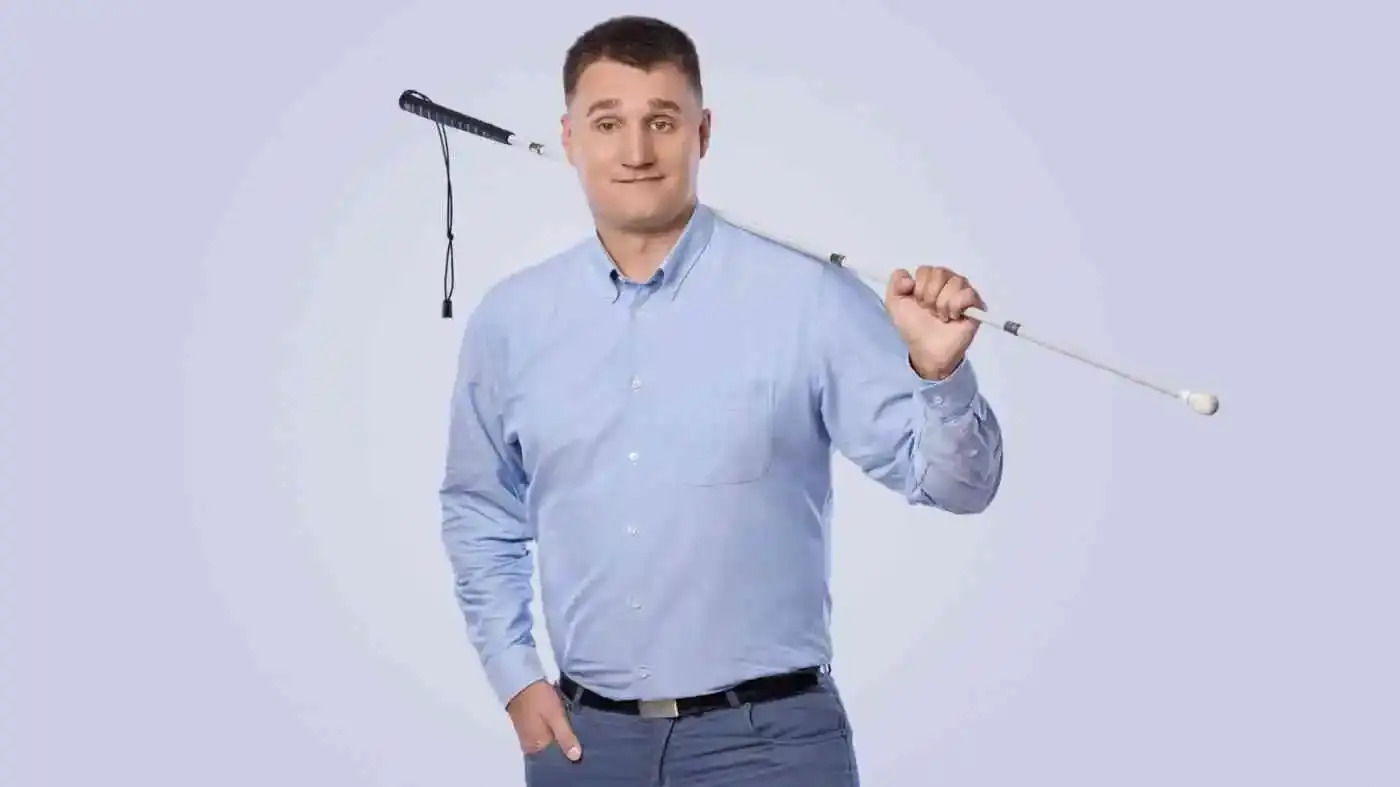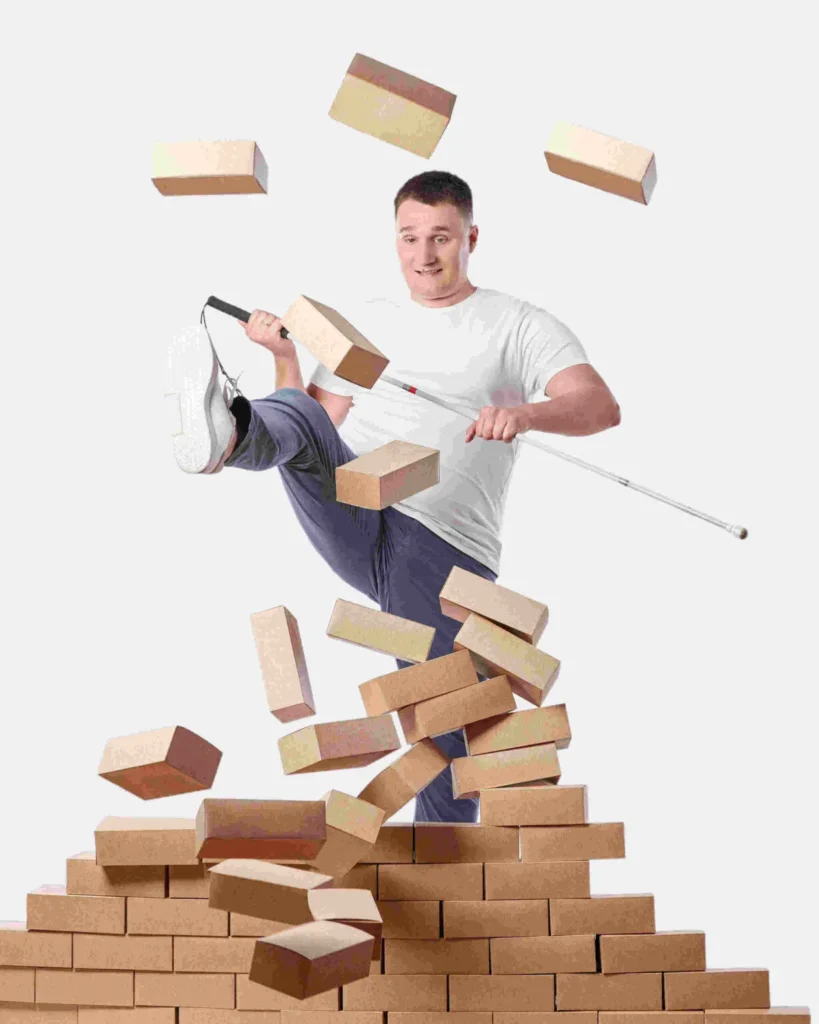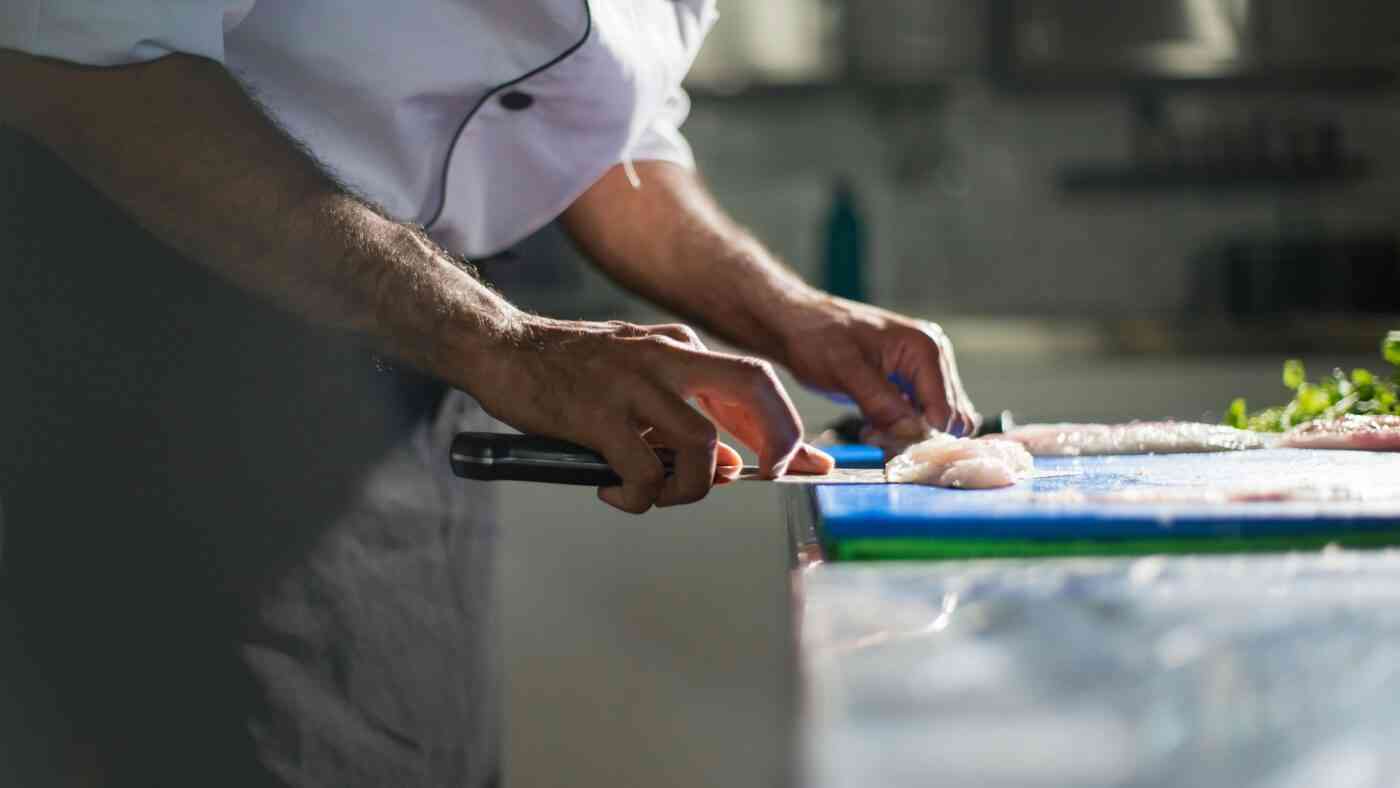Truth & Goodness
Poison on a Plate: What Drives Us to Eat Dangerously?
01 March 2026

Dariusz Jaroń talks with Marcin Ryszka, former professional swimmer, Paralympian, and World and European Championships medalist. Marcin lost his sight at the age of five. After finishing his sports career, he became a journalist, an expert on digital accessibility at the AGH University of Science and Technology, and a captain of the Wisła Kraków blind football team.
Dariusz Jaroń: What is digital accessibility?
Marcin Ryszka: It is the adaptation of technology to the capabilities of people with disabilities so that they can use it. An example can be an application or a website. They must be designed so that they do not exclude the blind and the visually impaired. The ability to lower or capitalize letters, set the contrast of the page to make it more readable, and describe graphics are just some of the elements that determine whether everyone will be able to read the content of the website or application.
What does your work at AGH involve?
For four years I have been teaching community informatics students. The subject was called Modern Available Technologies, and I showed how people with disabilities move in the digital world, and what tools they use. The idea was to make future programmers and developers remember in their work the needs of the deaf, blind and people with other limitations. I am happy because more and more former and current university students are involved in projects that facilitate the daily functioning of the disabled.
What improvements have been made at the university?
Sound ATMs, among other things. We use cash less and less often, for the blind, a card or phone is a safer means of payment, but sometimes we need to have banknotes on hand. Another interesting project is typhlomaps.
What is that?
We have Braille printers and equipment for creating convex maps and graphics at AGH UST. Instead of drawing a sine wave, we can use software to print it, and the graph will become touchable. In addition to such solutions, we have also prepared typhlomaps, presenting the AGH campus from a bird’s eye view. The blind and the visually impaired people can touch and “see” what this campus looks like, and where specific buildings are located. It makes life incredibly easy for students. I also use it often myself. I rarely talk about it, but this job gives me a lot of satisfaction. I am a graduate of the university, I feel connected with it, and I have the opportunity to show that I am not just a somersault guy, but I can do interesting, valuable things.
We recommend: Does Man Have More Opportunities Than Ever Before?
More than three million people in Poland have a medically proven disability. There is someone to work on the facilities for.
I avoid statistics. Just like an engineer building the road. After all, he does not say: Look, a million drivers have already driven my two-lane road and none has fallen into a pothole. He has a different purpose. To make a reliable route for every participant of the traffic. Accessibility facilities are not just for people with disabilities. A broken leg can put any of us in a wheelchair. A recorded message on the bus informing about the next stop will be heard by everyone, not only the blind. Everyone is a beneficiary of accessibility.
You mentioned young people are open to initiatives supporting people with disabilities. Are we getting better at dealing with dissimilarity as a society?
Definitely. Years ago, disability was something to be ashamed of, it was something ugly, and ugliness had to be hidden. After 1989, it turned out that things could be different. And today it is a completely different world, especially among young people, there is no lack of whom in Kraków, where I live. Education pays dividends. There are integration meetings in kindergartens and schools that talk about the lives of people with disabilities, I participate in such meetings myself. What is the effect? The 20-year-olds do not hesitate to approach and offer help. The sight of a blind person is not surprising to them.

And the elderly?
There is a difference in approach. The dominant question is: How will I manage? Some time ago I ordered dinner at Wars (a dining car on the Polish State Railways trains). A man, I assume he meant well for me, asked if he would cut my cutlet. He wanted to help, but it turned out laughable. Sometimes it is even humiliating.
Could you give an example? When does it get uncomfortable?
Embarrassment is quite common, but my reaction depends on the day. Whether I am in a good mood or bad emotions have not accumulated in me. The cutlet scene made me laugh, and I smiled. However, I remember a situation that threw me off balance. I was picking up my wife from the hospital, after discharge I asked a lady to indicate the way to go out, and she blurted out at the top of her voice: “I admire your wife, a strong woman, if she took on such a burden.” I got hot under the collar, her words made me very sad.
Are you approached for support by parents of children who are losing their eyesight?
Very often, especially after the premiere of the book Nie widzę przeszkód (I do not see any obstacles). It’s hard sometimes because I can’t cut myself off from someone else’s suffering. I absorb their stories. These messages are accompanied by various emotions. I remember the mother of a five-year-old boy. He lost his sight. It seemed to her that it was the end of the world. She was afraid that he could not cope in life, but after reading the book, she realized that her son could also live normally. Knowing that I am a motivation for someone helps when I am in a worse mood.
You give the impression of a man who is rarely in a worse mood. Where does this energy come from?
I come from a mining clan. We never lacked strength, not just physical strength. Imagine having a blind seven-year-old child and sending them to a boarding school 100 kilometers from home. My heart would break if I had to make such a decision. But my parents’ decision was right. I started swimming, I got an education, and I made my life in Kraków. I do not know what it would look like if I stayed in my hometown of Czechowice-Dziedzice. Certainly, Kraków gave such children more opportunities.
I know that I am strong, but I am not a superhero. Such moments, when it is hard and I do not want anything, are plenty. I do not have a method for winning and I am in a good mood. I have the right, like everyone else, to complain a little, or not to do something, if it is beyond me at the moment. Anyway, every time I leave the house, no matter what my mood is, I also leave my comfort zone.
Does home mean self-reliance?
Yes. I know everything here. I know where it is. I can make coffee or tea, cook something. When I leave, I am dependent on the help of others and exposed to threats. There is no reason to think about it too much and enumerate these barriers because it would only lock me in four walls. I like to repeat, a little bit colloquially, that one needs to get life by the short hairs and move forward. Let’s not just be fooled by the images of others on social media or say to ourselves that others are better because they do so much and we are hopeless. Let’s not depreciate our lives. If someone fails, too bad, it happens, but they have to get up and try again.
We recommend: The Power of Situation, or Why We Yield to Authority
Do you miss the pool sometimes?
Not a little. I have been training for swimming competitions since the age of ten, subordinating my daily life to this discipline. I have been to two Paralympic Games, and I have won World and European Championships medals, but at some point, I had to say enough. Soon after, in 2015, I started to develop blind football in Poland. I still play. We train in Wisła 2-3 times a week, maybe I would not call us professionals, but it is not only recreation.
A former professional athlete usually has a goal in front of him. That is right?
I will not be the world champion or the best player, but I am very involved in the organization. A blind football league is being formed, the national team is getting stronger. There is a long-term goal. I would like the national team to play at the Olympics. I will no longer be on the pitch, but I will be happy to wear a suit and sit in the stands as an activist.
Translation: Marcin Brański

Truth & Goodness
01 March 2026


Zmień tryb na ciemny